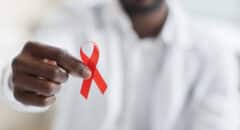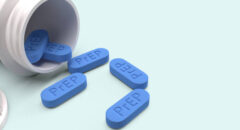
In a world filled with a plethora of health issues to take heed to, the significance of regular STD and HIV testing often takes a back seat. Ignorance may seem blissful, but when it comes to sexually transmitted infections, turning a blind eye can have serious consequences. Depending on your sex life, the dangers of not getting tested for STDs and HIV can be hefty. By shedding light on the potential risks, debunking myths, and sharing real-life stories, hopefully, we can break down the barriers that prevent individuals from taking charge of their sexual health.
The Silent Intruders
Sexually transmitted infections (STIs) are often called "silent intruders" because they can lurk within our bodies, causing damage without any obvious symptoms.
Many STIs, including chlamydia, gonorrhea, syphilis, and human papillomavirus (HPV), can go unnoticed for extended periods, leading to complications such as infertility, pelvic inflammatory disease, and even certain cancers.
HIV, the virus that causes AIDS, is another grave concern, as it attacks the immune system and can ultimately be fatal if left untreated.
The Power of Knowledge
Getting tested for STDs and HIV will take away all unknown fears of what you might have. Take control by knowing what’s going on with your sexual health.
Early detection plays a crucial role in preventing the spread of these infections. Annual or quarterly testing (depending on the number of partners you’re with) allows for timely treatment, reducing the risk of long-term complications and ensuring a healthier life.
Additionally, being aware of your status enables you to make informed decisions about sexual activities and take necessary precautions to protect yourself and your partner/s.
RELATED: Signs You May Have an STD (and Not Know It)
Debunking the Myths
Misinformation and myths surrounding STDs and HIV testing can contribute to the reluctance to get tested. Let's debunk some common misconceptions: testing is not just for promiscuous individuals; it is a responsible choice for everyone.
Confidentiality is a fundamental aspect of healthcare, and healthcare providers are trained to handle these matters with sensitivity and discretion.
If you’re not comfortable with going into a clinic to be tested you can take a home STD/STI test. Of course, please be sure to contact your doctor and seek counsel on taking an at-home test (Its accuracy is still in heavy discussion). Whether in person or at home, testing is not something to be feared; it is a proactive step towards taking control of health.
RELATED: 13 HIV Symptoms that Look Like Something Else
Real Stories
To truly understand the dangers of not getting tested, let's explore some real-life stories. Shannon Boodram, sex educator, ambassador for AIDS Healthcare Foundation, and best-selling author, shares her story of how she contracted an STD during her younger years on her YouTube channel.
Shannon was in a committed relationship and by the third or fourth month, she decided to go on birth control. She and her former partner both felt they didn’t need to use condoms anymore being that Boodram was on the pill (They did get tested before her beginning to take birth control and both were negative of any STDs or STIs at the time).
A year into their relationship, her mother offered a free health assessment at her job. Shannon took the offer. Unfortunately, she tested positive for chlamydia. Although she may have been faithful, her partner was not. Thankfully, moving forward, she mentions the importance of using condoms no matter what.
The dangers of not getting tested for STDs and HIV are real and should not be underestimated. By avoiding testing, you not only put their health at risk but also contribute to the ongoing spread of infection.
It's time to break the stigma surrounding testing, embrace open conversations about sexual health, and take charge of our well-being. Regular testing can save lives, prevent long-term complications, and promote a healthier future for everyone. Remember, knowledge is power, and together, we can make informed choices for a safer and happier tomorrow! So, have you taken an STD or STI test this year?









